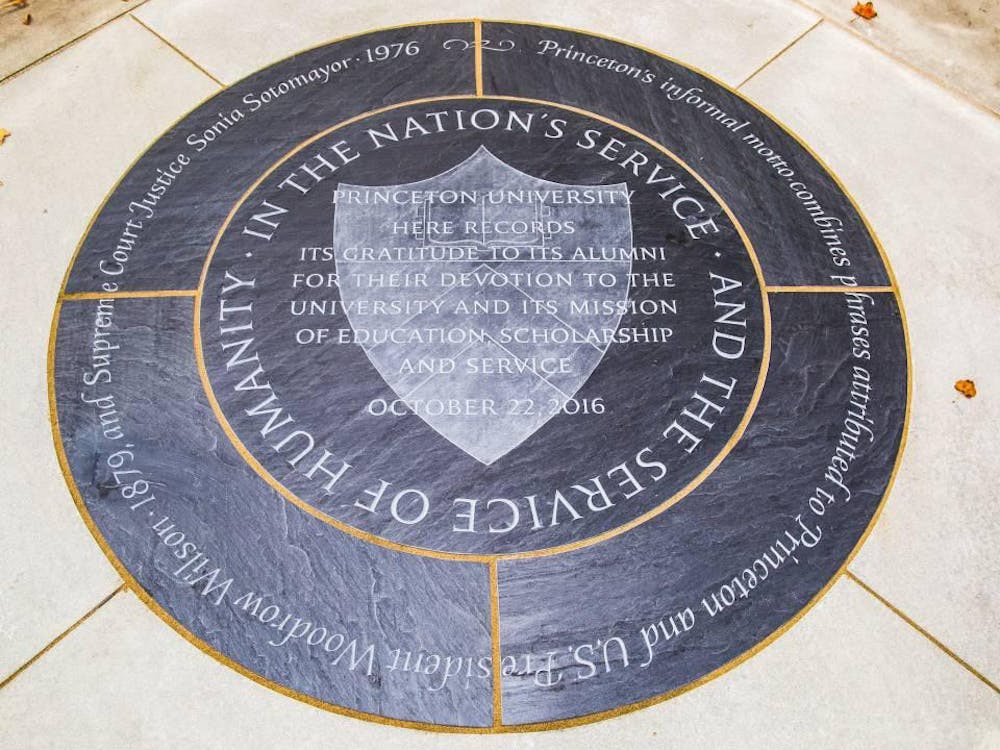At this point in my Princeton career, I can name a significant number of friends and acquaintances who plan on using their college degree to glorify the prestigious vocation of consulting after they graduate. Many Princeton seniors can. In fact, many Princeton juniors, sophomores and even freshmen can, although the numbers increase as each class approaches graduation.
Toward the end of fall semester last year, I was sitting around with three girlfriends discussing a future beyond Princeton, as overworked juniors who don’t want to complete their independent work are apt to do. We were merrily disparaging the peers who would end up following a career path in finance or consulting, as idealistic college students with impractical majors are also apt to do. The insult of the hour was “selling out,” a term applied in tones of scathing criticism to the future employees of Bain, IBM and Goldman Sachs. We were the noble, artistic, aimless builders of tomorrow’s society, destined for careers in public service, environmental think tanks and academic fellowships. We were prepared to sacrifice job security and high salaries for our passions. In comparison, our peers who were following the typical fast track to consulting and finance appeared unworthy and conformist. They were lost little souls who had sacrificed dreams for money.
At a peak in this conversation, one of the participants — she had kept quiet for most of the self-righteous Bain-bashing — submitted for consideration the idea that it takes an incredible amount of privilege to label a secure, respectable, intellectually challenging career as “selling out.” We paused. We considered. The conversation continued on a different tack, but I’ve been stuck in that pause ever since.
What kind of young person dismisses an employment opportunity that promises financial stability, connections and career advancement? Who spurns a job sector that their university’s Career Services staff has the most experience navigating, or shrugs at the advantages of a large, influential alumni network?
It takes unbelievable strength of character or a very secure socio-economic background to become a professional artist or a social justice activist. Most of my friends fall into the latter category. Of course, the two characteristics aren’t mutually exclusive. But most of the counterculture Princeton students who abhor their classmates’ career of choice have a tendency to focus scornfully on the future financial security of their consulting-bound peers while ignoring the influence that this same characteristic played — and still plays — in their own lives.
I recently met a senior at Princeton who is as passionate about the consulting work he will do next year as any of my friends who want to become professional actors. He made managerial consulting sound interesting, a feat that my freshman year self would have dismissed out of hand as impossible. Once again, I was forced to revisit my assumptions about those who become consultants after college. I had originally believed that their standard of success was based on money, prestige and little else. Listening to this classmate review case studies with the enthusiasm of a child (a very bright, opinionated child), I felt the same admiration I feel when a pre-med student discusses a new scientific breakthrough in cancer research. It’s hard for me to relate, and I certainly don’t want to become a doctor, but I would never accuse said pre-med of somehow reneging on her dreams.
Do some Princeton students choose consulting because it’s easy? Probably. The negative connotations of the Princeton consulting stereotype have to do with materialism and conformity, and most stereotypes have an edge of truth. Do I have the right to condemn future consultants on the basis of my own vague aspirations to become a writer-activist-world-improver? Not really. That cheesy old platitude of ‘follow your dreams’ does not specify which dreams we’re supposed to follow for a reason. I am choosing a path somewhat less sure and certainly less lucrative than a job in consulting, but my background ensures that my chances of experiencing real poverty are slim to none. My personal ability to chase down dreams is a freedom that my parents bought and cultivated for me. Any blanket condemnation of consulting and finance jobs would indicate a woeful lack of self-awareness.
So, to all of the kindred spirits who roll their eyes when yet another classmate announces that they just signed a contract with McKinsey, I advise you to revisit a piece of popular wisdom immortalized in an old Princeton Tory article written by my friend Tal Fortgang ’17: Check your privilege.
Tehila Wenger is a politics major from Columbus, Ohio. She can be reached at twenger@princeton.edu.








